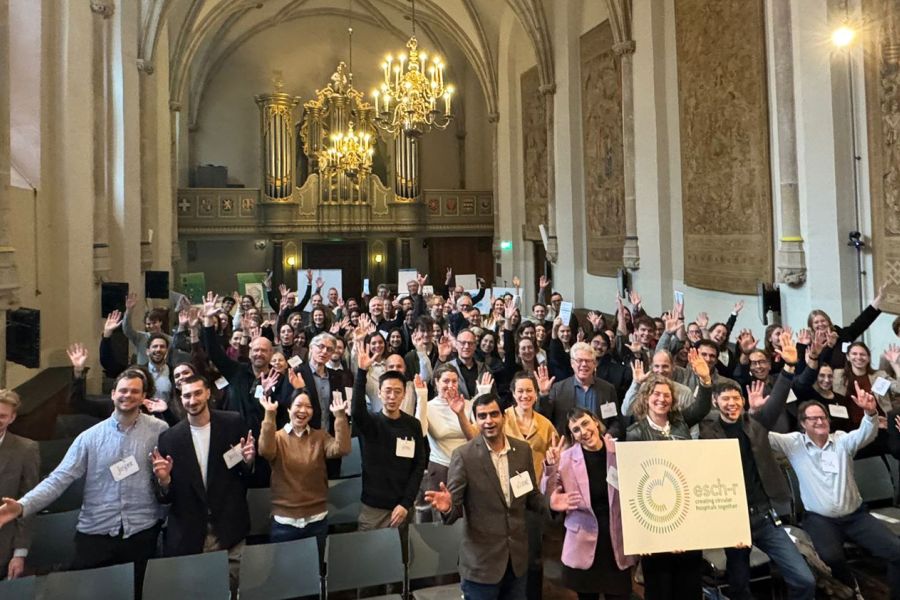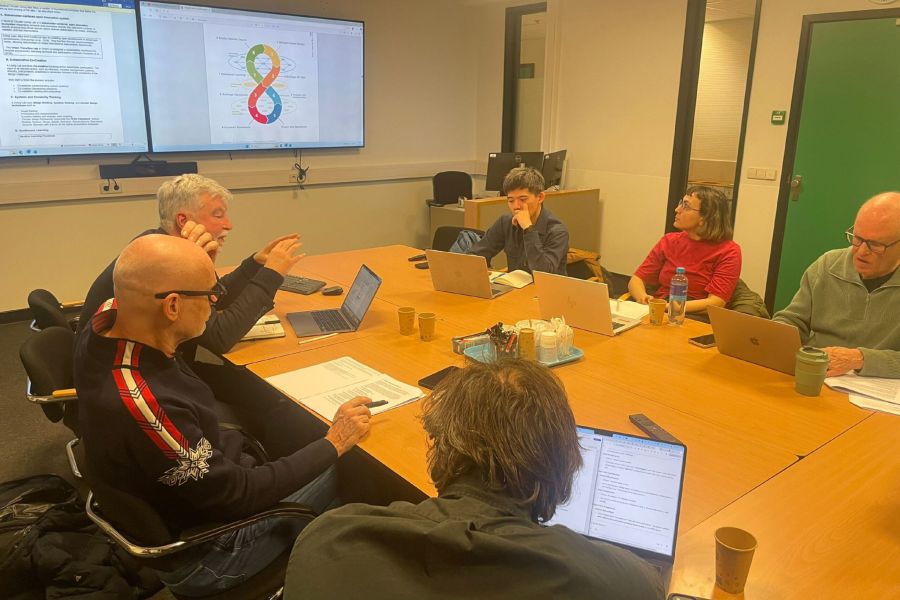How to make Healthcare more Sustainable and Circular?
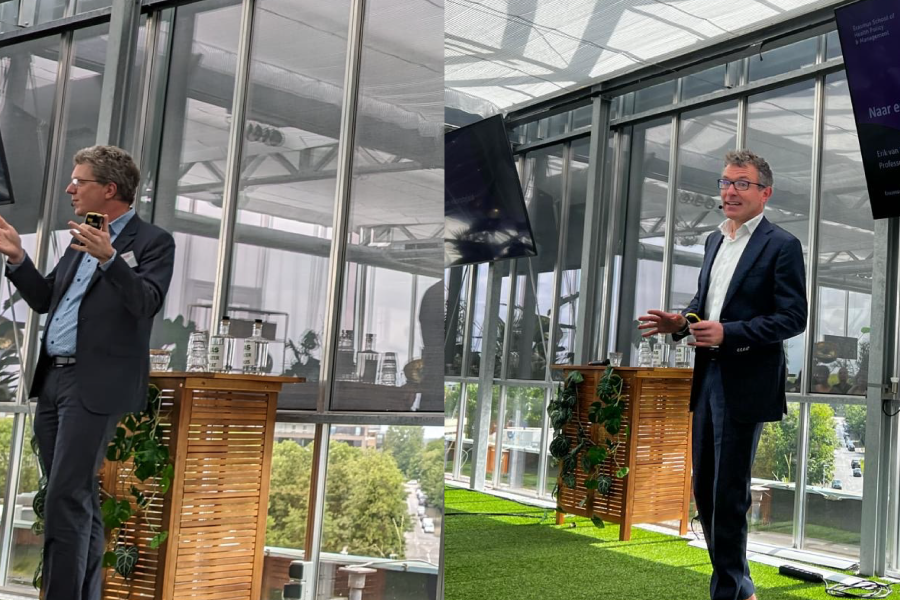
Prof. Erik van Raaij as ESCH-R Board member and Harald Tepper from Philips presented during the Zorgvisie Congress ‘Sustainable and Circular Healthcare’ on June 12.
‘Sustainable and Circular Healthcare’
From 1 January 2025, healthcare providers will have to comply with the new European Corporate Sustainability Reporting Directive (CSRD). With this, healthcare organizations will have to work in a much more circular and sustainable way than now. How far along are they in the preparations to soon comply with extensive reporting requirements on the environment, but also on quality of care and working conditions of staff?
There is also the need to consume far fewer raw materials in healthcare processes. After all, CO2 emissions from healthcare are almost as high as from aviation. During the congress multiple professionals in sustainability and healthcare shared their insights on how solutions to legal, financial, organizational and practical challenges with creating sustainable and circular healthcare.
Prof. Erik van Raaij: Tips for organizing a sustainable procurement policy
Healthcare has a significant negative impact on the environment. Reducing this requires research and broad collaborations between many different disciplines. How can procurement be organized and managed to make the operations of hospitals and other healthcare institutions more sustainable and circular? Prof. dr. ir. Erik van Raaij presented insights for organizing a sustainable procurement policy.
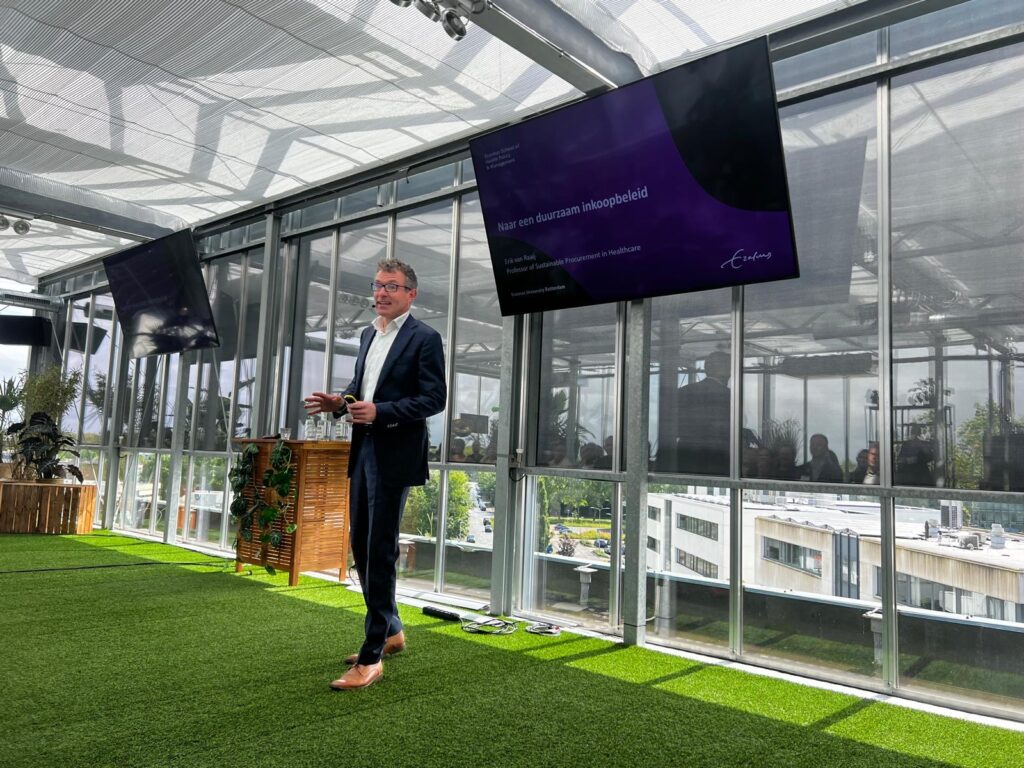
Harald Tepper: Golden rules when collaborating on sustainable care
Sustainability is at the intersection of human health and the health of our planet. Instead of seeing sustainability as an isolated initiative, make it part of every decision in your organization in terms of strategy, investment or operations. Harald Tepper shared the lessons learned from Philips and how healthcare organizations can begin to:
- reduce their impact on the environment;
- making sustainable choices for products and;
- a phased and programmatic approach to sustainability.
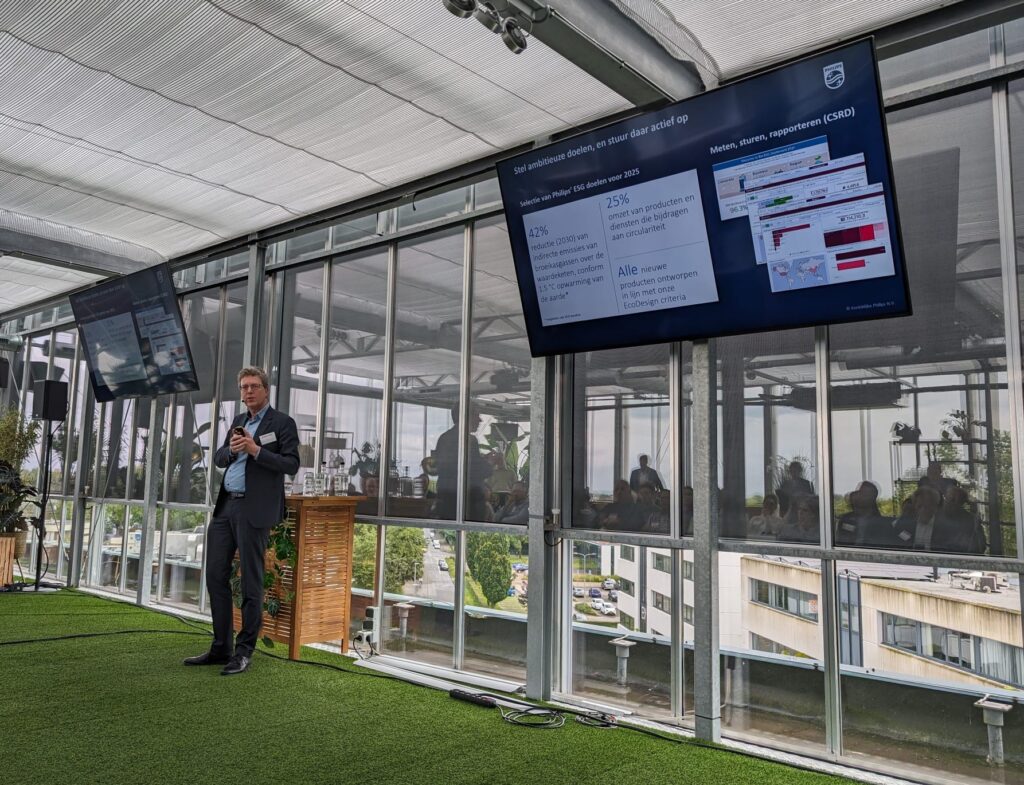
Read more news about the ESCH-R project via this page.
